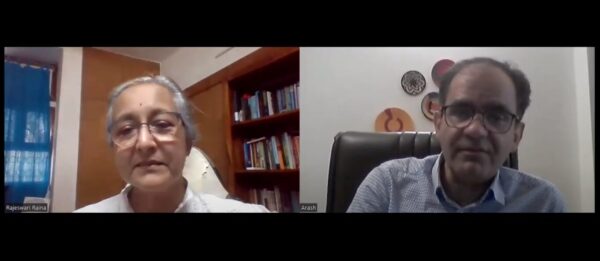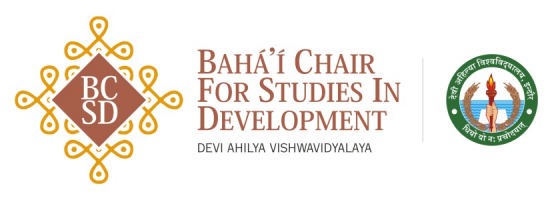Lecture on ‘Understanding Interactions for Sustainability: Technologies, Environment and Development in India”

Lecture on ‘Youth and Social Transformation: Creating Spaces that Foster Leaders of Change”
June 5, 2024
Lecture on ‘Himalayan Pastoralism: Glory Days, Last Gasp or Somewhere in Between’
August 22, 202412 JUNE 2024
This lecture draws attention to technology generation and deployment. The literature on technological change for the environment and for development in India, reveals several crucial interactions. Some beget programmes and investments from the state. Some do not. Two illustrations, technological and institutional innovations involved in the cultivation of rice in Punjab and the revival of millets in Odisha reveal how the state acknowledges and addresses these interactions. These new interactions or reformed nexus created between the environment and development, also constitute the state’s engagement with and the interactions between environmental problems and development challenges. A historically and institutionally informed engagement with the dominant frameworks of technological determinism and social constructivism, reveal the knowledge politics involved in the investments in technologies. While a constructivist framework explains much of conservation technologies and practices at the environmental front, it is technological determinism that appears strong in the case of agricultural modernization for development. This lecture problematizes the conceptualization of technology as embodied capital. This was the core of the internationally generated high pay-off input model that was institutionalized as part of the green revolution and demanded industrial capacity building for the production of technologies. With the global acceptance and evolution of this conceptualization of technology (as industrially produced artefacts), came a reconceptualization of the interactions between the environment and development as those that could be solved with technologies or capital-intensive inputs. There was also a redesign of the state’s programmes or systems for the generation, dissemination and adoption of these technologies. A brief discussion on India’s potential agroecological transitions exposes the problem located in this techno-centric framing. While technologies are necessary for environment friendly agroecological transitions, they do not come as capital-intensive inputs with selective perception of the set of interactions between the environment and development. They are agro-ecosystem specific, flexible and fungible in given local knowledge contexts, and do not have given target and control mechanisms built into them. Globally, climate change adaptation and mitigation demand the same insights into important interactions. There is a lot of work necessary, on reframing the sustainability problem and highlighting environmental challenges that question our cognition of the environment-development interactions.
Click here for the background note.
Event Highlights Photo

https://www.youtube.com/watch?v=7sj3ys_prHk
About the speaker:
Rajeswari S. Raina is a Professor with the Department of International Relations and Governance Studies, in Shiv Nadar University (Institution of Eminence), Delhi NCR, India. She has a background in the agricultural sciences and a PhD in Economics. Her research is inter- and trans-disciplinary, mainly in institutional economics, science, technology, society (STS) studies, and the substantive relationships that underpin agriculture, human and ecological wellbeing. Her publications and public engagements with governmental, academic and civil society organizations and networks, are on institutions and policy processes, post-growth possibilities, mobilizing public support and piloting living soils, inclusive innovation (in rural India and China), decentralized agroecological and social-ecological system transformations, international environmental assessments and knowledge based bio-economic capabilities.

